Table of Contents
Remembering Bud Powell, born on this day in 1924.
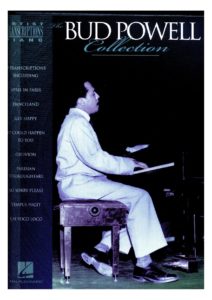
In the same way that Thelonious Monk managed to illuminate the modern jazz scene through compositions not subject to any specific model, Bud Powell (New York, September 27, 1924 – New York, July 31, 1966), dictated the fundamental keys of the new piano language without the need to cling to palpable references. Even today, he constitutes the unsurpassed technical summit of bebop piano and is remembered as the most influential musician of this movement, after Charlie Parker, but ahead of all others, including Dizzy Gillespie.
Best Sheet Music download from our Library.
His childhood was saturated with music, his older brother played the trumpet and violin professionally and his grandfather, Zachary, was the best flamenco guitarist in the United States. His father, a pianist assigned to the “stride” style, supported his early vocation and gave him his first classes.
Bud Powell’s progress was spectacular and at that time, it was common to see him perform Bach compositions and other classics with his friend, Elmo Hope. It was not until 1939, when Powell, got his first important contract with the “Sunset Royals” of the singer, Valaida Snnow, and in 1939 he recorded his first album titled “Reverse The Changers” for the “Duke” label and under the leadership of saxophonist, Frank Sokolov.
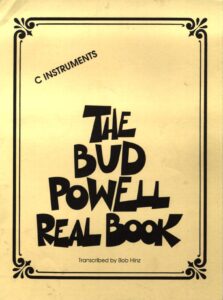
It was not until 1944, when encouraged by Thelonious Monk, he joined Cootie Williams’ orchestra and recorded a very brief solo on “Blue Garden Blues”, the first real example of his colossal talent. That same year he suffered his first arrest for public scandal, and the following years he received a brutal beating from the Philadelphia police that presumably left him forever affected. His mental disorders reproduced, and he was sent to a Long Island Psychiatric Hospital.
Please, subscribe to our Library.
If you are already a subscriber, please, check our NEW SCORES’ page every month for new sheet music. THANK YOU!
In 1946, recovered, he joined the small combo of the double bassist, John Kirby, and by chance this small group was hired at Minton’s Playhouse in Harlem, the “temple” of bebop where Powell came into contact with the leadership of that movement. , which allowed him to participate between 1946 and 1947 in a good number of jam sessions with Dexter Gordon, Jay Jay Johnson, Sonny Stitt, Kenny Clarke and Sarah Vaughan, among others.
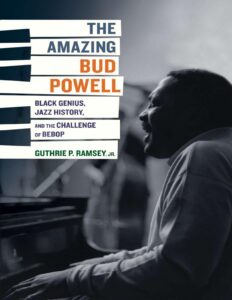
His debut as a leader came on January 10, 1947, for the small Three Deuces label, and in May of that year, he recorded the only studio record for the Savoy with Charlie Parker. A long two-year hiatus, spent mostly in the “Creedmore Sanatorium”, where he even received electroshock treatment, gave way, paradoxically, to his most fertile and artistic period. Starting on August 8, 1949, under the supervision of Alfred Lion and Francis Wolf, Bud Powell left in the coffers of the Blue Note label another vision of modern pianism perfectly compatible with the one that Thelonious Monk had contributed just two years earlier.
Once again admitted for seventeen months in another Psychiatric Hospital, when he was discharged in February 1953, he formed a stable trio with the double bassist, George Duvivier, and the drummer, Art Taylor.
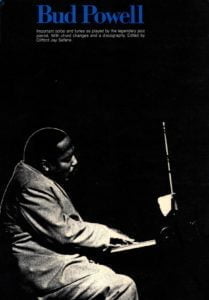
On May 15, 1953, a historic event occurred in the professional life of Bud Powell. Along with Charlie Parker, Dizzy Gillespie, Charles Mingus and Max Roach, he participated in a massive concert held at Massey Hall in Toronto, Canada, considered the swan song of bebop and perhaps the best jazz concert of all time. From then on, Powell began to enter a phase of profound, almost irreversible mental deterioration, but in 1956 he toured Europe with Miles Davis, Lester Young and Milt Jackson’s Modern Jazz Quartet. He visited the old continent again in 1959, but this time he stayed for five years. Altevia Edwards, better known as “Buttercup”, accompanied him and chose Paris as his place of residence.
Awarded the honors of a jazz great, he formed a regular trio known as the “Three Bosses” with double bassist, Pierre Michelot, and drummer, Kenny Clarke, who were the main attraction at the Parisian club, “Blue Note.” It was an important period of his life thanks to the care provided to him by Francis Paudras, an extraordinary jazz fan and later author of Powell’s biography “The Dance Of The Infidels.” But suffering from acute tuberculosis, unable to give up drinking, and homesick for New York, Bud Powell returned to the United States. His reappearance in the legendary “Birdland” caused one of the sweet moments of his career. Seven minutes of uninterrupted applause showed that his fans had not forgotten him, but that reappearance was a cruel mirage. His last two years were spent in an apartment in Brooklyn accompanied by his daughter Celia.
Almost at the end of his life, he participated in 1965 in two concerts held at Town Hall and Carnegie Hall, the latter in honor of the tenth anniversary of the death of Charlie Parker, but on July 31, 1966 he died at the Kings. County Hospital” in Brooklyn. More than five thousand people spontaneously took to the streets to honor him and at his funeral, Barry Harris and Lee Morgan played in his honor. As Francis Paudras said: «…. Bud Powell had two personalities. One drove him to fight and overcome his problems, to play and create music. The other dragged him to self-destruction, to an absolute lack of self-respect and the latter would win the game.
In 1986, the French film director, Bertrand Tavernier, produced an extraordinary film that captures Bud Powell’s Parisian period with absolute neatness and fidelity. His film: “Round Midnight”, performed in its starring role by saxophonist, Dexter Gordon, is one of the great films related to jazz.
Bud Powell – Anthropology (1962) LIVE
Bud Powell – piano Niels-Henning Orsted Pedersen – bass Jorn Elniff – drums Live from Café Montmartre, Copenhagen, early 1962.
Bud Powell biography on Wikipedia.
Browse in the Library:
| Artist or Composer / Score name | Cover | List of Contents |
|---|---|---|
| The Complete Piano Player Book 5 by Kenneth Baker |
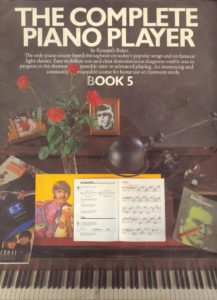 |
The Complete Piano Player Book 5 |
| The Complete Piano Player Easy Blues |
 |
The Complete Piano Player Easy Blues |
| The Complete Piano Player Style Book by Kenneth Baker |
 |
The Complete Piano Player Style – Book by Kenneth Baker |
| The Conformist – Main theme (Georges Delerue) | ||
| The Contradictions Of Jazz (Studies In Jazz) by Paul Rinzler (Book) |
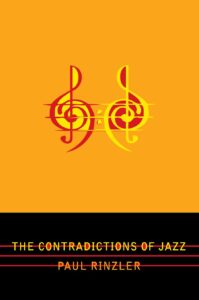 |
|
| The Corrs – Angel | ||
| The Corrs – It’s Easy To Play The Corrs |
 |
The Corrs – It’s Easy To Play The Corrs |
| The Corrs – One Night | ||
| The Corrs – Play Guitar With – MP3 audio tracks embedded in PDF Play Along with Tablature |
 |
Play Guitar With – The Corrs |
| The Corrs – Runaway | ||
| The Cottage on the Beach (Atonement OST) Dario Marianelli | ||
| The Country Music Fake Book |
 |
The Country Music Fake Book |
| The Creative Development of Johann Sebastian Bach Volume I (1695-1717) |
 |
|
| The Creative Development of Johann Sebastian Bach, Vol II, 1717-1750 |
 |
|
| The Cure – The Best Of [Guitar Tablature Songbook] |
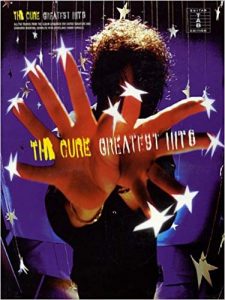 |
The Cure – The Best Of [Guitar Tablature Songbook] |
| The Cure Disintegration(Guitar & Vocal sheet music) with Tablature |
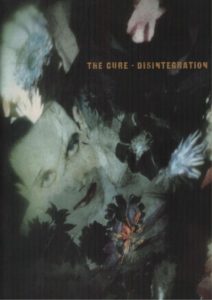 |
The Cure Disintegration Guitar |
| The Curious Case of Benjamin Button – Alexandre Desplat |
 |
The Curious Case of Benjamin Button – Alexandre Desplat |
| The Danish Girl – Fonnesbech (Alexandre Desplat) | ||
| The Danish Girl (Alexandre Desplat) | ||
| The Day of the Dolphin (Georges Delerue) | ||
| The Deer Hunter – Cavatina – Stanley Myers | ||
| The Definitive Jazz Collection Alto Saxophone With Chords |
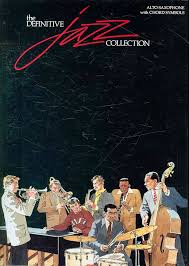 |
The Definitive Jazz Collection Alto Saxophone With Chords |
| The Disappearance Of Hatsune Miku Piano |
 |
|
| The Doobie Brothers Long Train Runnin Piano Vocal Guitar chords |
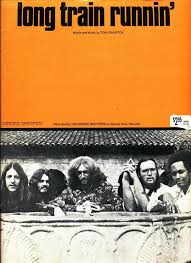 |
|
| The Doors – Hello I Love You | ||
| The Doors – Light My Fire | ||
| The Doors – Riders On The Storm | ||
| The Doors – Rock Score (band songbook) |
 |
|
| The Doors Anthology (Guitar & Tablature) |
 |
The Doors Anthology (Guitar & Tablature) |
| The Doors Guitar Tablature Anthology |
 |
The Doors Guitar Tablature Anthology |
| The Doors Songbook |
 |
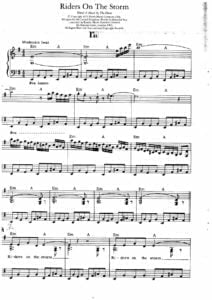 |
| The Doors The Music Of The Doors |
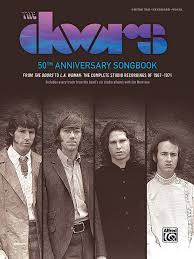 |
The Doors The Music Of The Doors |
| The dream within (Lara Fabian) | ||
| The Eagles (Guitar Backing) Jam with – (with MP3 audio tracks to play along) with Tablature |
 |
The Eagles Jam with |
| The Ecstasy of Gold (Ennio Morricone) | ||
| The Elder Scrolls III Morrowind Title Music |
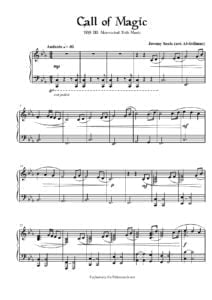 |
|
| The End Of The World – Skeeter Davis |
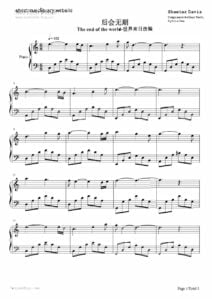 |
|
| The End Of The World – Skeeter Davis (Musescore File).mscz | ||
| The English Patient – Main Theme (Musescore File).mscz | ||
| The English Patient Piano Solo Gabriel Yared |
 |
|
| The Entertainer (Musescore File).mscz | ||
| The European Piano Method Vol. 1 Fritz Emonts |
 |
|
| The European Piano Method Vol. 2 Fritz Emonts |
 |
|
| The Evolution Of Jazz Arranging by Fred Sturm (Book) |
 |
|
| The Evolution Of The Art Of Music Cambridge Librar. (Book) |
 |
|
| The Exciters – Tell Him | ||
| The Exercise Book Guitar Grimoire Series Adam Kadmon Guitar Tablature |
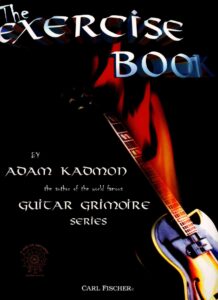 |
|
| The Exorcist Main Theme Piano Solo arr. Robert Miles and Storm Kesocascay | The Exorcist Main Theme Piano Solo arr. Robert Miles and Storm Kesocascay cover | |
| The Fantasticks – Celebration – Tom Jones & Schmidt, Harvey | The Fantasticks. Celebration – Tom Jones & Schmidt, Harvey | |
| The Fault In Our Stars Songbook Sheet Music Piano Vocal Guitar |
 |
The Fault In Our Stars Songbook Sheet Music Piano Vocal Guitar |
| The First Noel – 17th Century English Carol – Easy Piano Arr. With Lyrics (Musescore File).mscz | ||
| The First Principles Of Pianoforte Playing (By Tobias Matthay) (1905) |
 |
|
| The Fountain – Lastman – Clint Mansell | ||
| The Four Seasons – Vivaldi (Musescore File).mscz | ||
| The Four Seasons (Complete) (Musescore File).mscz | ||
| The Fray – How To Save A Life | ||
| The Fray How to Save a Life |
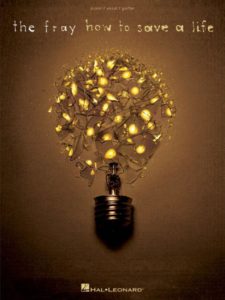 |
The Fray How to Save a Life |
| The Freddie Mercury album (Queen) Piano Vocal Guitar |
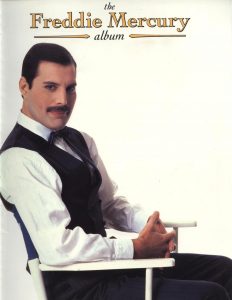 |
The Freddie Mercury -Album |
| The Free Music Analysis Anthology by Mark Feezell | Book Theory | |
| The Frim Fram sauce by Joe Ricardel and Redd Evans -Jazz Play Along |
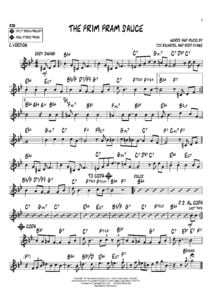 |
The Frim Fram sauceMusic: |
| The Full Monty (The Musical) – Piano Conductor Score Book by Terrence McNally Music and Lyrics by David Yazbek |
 |
The Full Monty (The Musical) – Piano Conductor Score |
| The Fusion Guitar Workbook (Deutsch German) with Tablature |
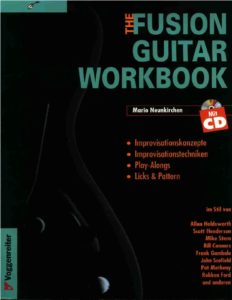 |
|
| The Genius Of Kurt Weill (1938) |
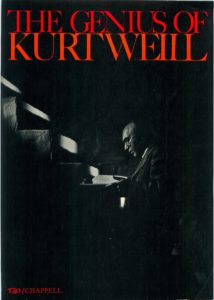 |
The Genius Of Kurt Weill (1938) |
| The Genius Of The Jazz Giants Vol 4 |
 |
The Genius Of The Jazz Giants Vol 4 |
| The Giants Of Jazz Piano |
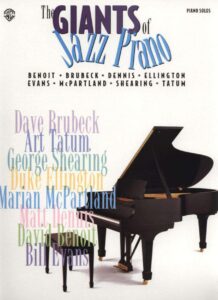 |
The Giants Of Jazz Piano |
| The Gipsy Jazz Guitar Songbook |
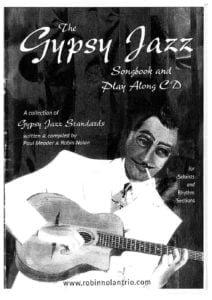 |
The Gipsy Jazz Guitar Songbook |
| The Girl From Ipanema (Antonio Carlos Jobim & Vinícius de Moraes) Jazz Piano Solo arr. sheet music |
 |
|
| The Girl From Ipanema (Guitar Tabs) (Musescore File).mscz | ||
| The Girl with the Sun in her Hair (John Barry) | ||
| The Glorious Ones – I Was Here (Piano vocal) by Lynn Ahrens and music by Stephen Flaherty | The Glorious Ones – I Was Here (Piano vocal) by Lynn Ahrens and music by Stephen Flaherty | |
| The Godfather – Love theme (Nino Rota) | ||
| The Godfather – Main Theme | ||
| The Godfather 2 – End Title (Nino Rota) | ||
| The Godfather Songbook – piano |
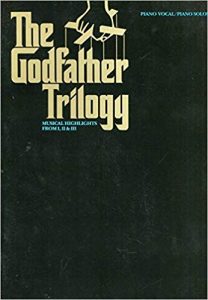 |
 |
| The Godfather Theme (Nino Rota) | ||
| The Godfather Waltz (Musescore File).mscz | ||
| The Godfather Waltz (Nino Rota) | ||
| The Golden Era Of Rock And Roll (Piano, vocal and Guitar Chords) |
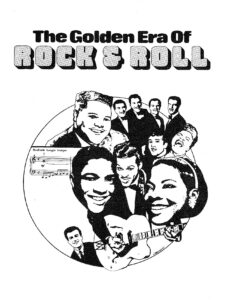 |
The Golden Era Of Rock And Roll (Piano, Vocal And Guitar Chords) |
| The Gravel Road (The Village OST) James Newton Howard | ||
| The Great American Movie Songbook (for organ & keyboard) Very easy |
 |
The Great American Movie Songbook |
| The Great Composers (By Hezekiah Butterworth) (1884) |
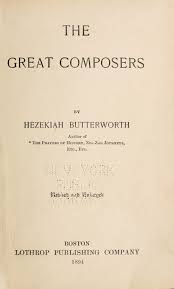 |
|
| The Greatest Love Songs Of The 21st Century |
 |
The Greatest Love Songs Of The 21st Century |
| The Greatest Love Songs Of The 60s |
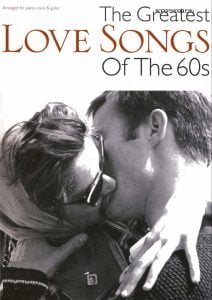 |
The Greatest Love Songs Of The 60s |
| The Greatest Love Songs Of The 70s |
 |
The Greatest Love Songs Of The 70s |
| The Greatest Love Songs Of The 80s |
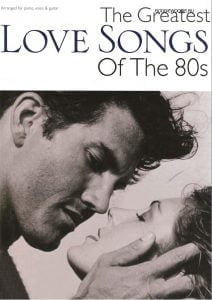 |
The Greatest Love Songs Of The 80s |
| The Greatest Love Songs Of The 90s |
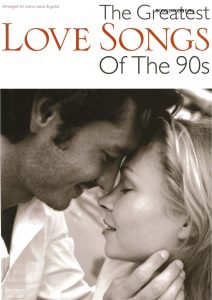 |
The Greatest Love Songs Of The 90s |
| The Greatest Showman Vocal Selections |
 |
The Greatest Showman Vocal Selections |
| The Grinch You’re A Mean One Mr. Grinch (Easy Solo Piano Arr.) By Dr. Seuss And Albert Hague | The Grinch You’re A Mean One Mr. Grinch (Easy Solo Piano Arr.) By Dr. Seuss And Albert Hague | |
| The Grinch You’re A Mean One Mr. Grinch (Jazzy Solo Piano Arr.) By Dr. Seuss And Albert Hague | The Grinch You’re A Mean One Mr. Grinch (Jazzy Solo Piano Arr.) By Dr. Seuss And Albert Hague | |
| The Grinch – You’re A Mean One Mr. Grinch (Easy Solo Piano Arr.) By Dr. Seuss And Albert Hague (Musescore File).mscz | ||
| The Grinch – You’re A Mean One Mr. Grinch (Jazzy Solo Piano Arr.) By Dr. Seuss And Albert Hague (Musescore File).mscz | ||
| The Guitar Works Of Garoto Vol 1 Guitar Scores |
 |
The Guitar Works Of Garoto Vol 1 Guitar Scores |
| The Guitarist’s Scale Book by Peter Fogl with TABs |
 |
|
| The Hanging Tree Sheet Music (From The Hunger Games Mockingjay, Part 1) (James Newton Howard) |
 |
|
| The Harmonious Blacksmith – Gf Händel (Musescore File).mscz | ||
| The Harmony Of Bill Evans by Jack Reilly |
 |
The Harmony Of Bill Evans (Piano Score) |
| The Healing – Lady In The Water | The Healing – Lady In The Water | |
| The Hill (Marketa Irglova) | ||
| The History Of Jazz – Book by Ted Gioia (Oxford Un. Press) |
 |
|
| The history of the blues – Koopmans Andy (Book) |
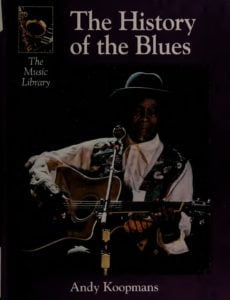 |
|
| The Hobbit – Song of the lonely mountain (Neil Finn) |
 |
The Hobbit song of the lonely mountain |
| The Horse Whisperer Sheet Music Voice Of God – Thomas Newman | ||
| The Horse Whisperer Sheet Music – Montana – Thomas Newman | The Horsewisperer – Montana – Thomas Newman | |
| The Horse Whisperer Sheet Music – The Vast Continent – Thomas Newman | The Horsewisperer – Montana – Thomas Newman | |
| The Horsewisperer – Montana – Thomas Newman | ||
| The Horsewisperer – The Vast Continent – Thomas Newman | ||
| The Horsewisperer – Voice Of God – Thomas Newman | ||
| The House of the raising Sun – Traditional (Guitarr arr. sheet music) | The House of the raising Sun – Traditional (Guitarr arr. sheet music) | |
| The Hundred Best Short Classics Book 2 Cuthbert Whitemore |
 |
The Hundred Best Short Classics Book 2 Cuthbert Whitemore |
| The Hunger Games – James Newton Howard The Train |
 |
|
| The Immigrant – Love theme (The Godfather OST) Nino Rota | ||
| The Immigrant (The Godfather OST) Nino Rota | ||
| The Imperial March Star Wars Sheet Music For Piano by John Williams |
 |
The Imperial March Star Wars Sheet Music For Piano |
| The Improvisation Of Musical Dialogue A Phenomenology Of Music (Bruce Ellis Benson) Book |
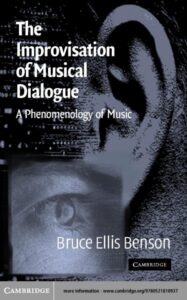 |
|
| The Interpretation Of Piano Music (By Mary Venable) (1913) |
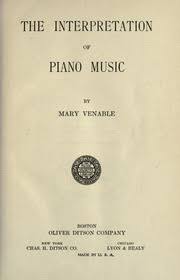 |
|
| The Jazz Piano Book Mark Levine |
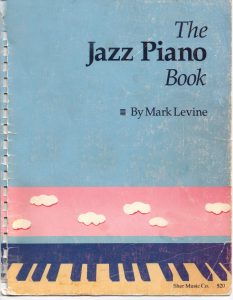 |
jazz piano book |
| The jazz style of John Coltrane – David N. Baker |
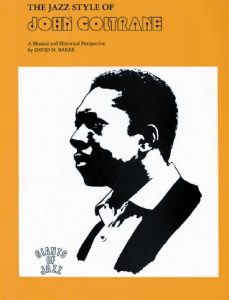 |
|
| The Jazz Tradition by Martin Williams (1993) |
 |
|
| The Joe Pass Collection with Tablature |
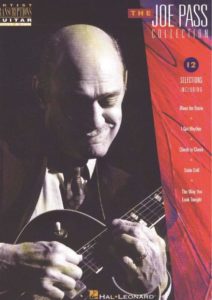 |
The Joe Pass Collection |
| The John Coltrane companion by Carl Woideck |
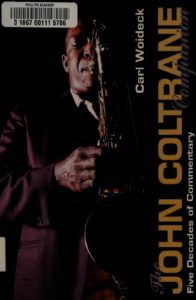 |
